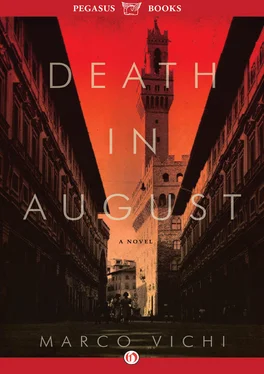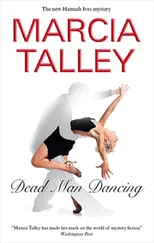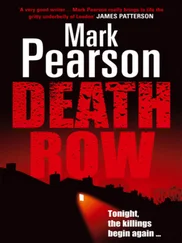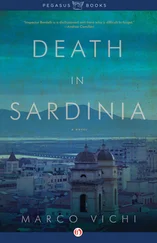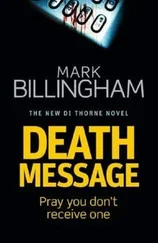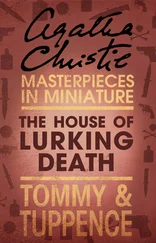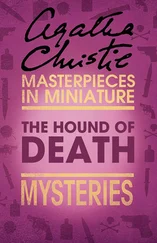Marco Vichi - Death in August
Здесь есть возможность читать онлайн «Marco Vichi - Death in August» весь текст электронной книги совершенно бесплатно (целиком полную версию без сокращений). В некоторых случаях можно слушать аудио, скачать через торрент в формате fb2 и присутствует краткое содержание. Жанр: Полицейский детектив, на английском языке. Описание произведения, (предисловие) а так же отзывы посетителей доступны на портале библиотеки ЛибКат.
- Название:Death in August
- Автор:
- Жанр:
- Год:неизвестен
- ISBN:нет данных
- Рейтинг книги:3 / 5. Голосов: 1
-
Избранное:Добавить в избранное
- Отзывы:
-
Ваша оценка:
- 60
- 1
- 2
- 3
- 4
- 5
Death in August: краткое содержание, описание и аннотация
Предлагаем к чтению аннотацию, описание, краткое содержание или предисловие (зависит от того, что написал сам автор книги «Death in August»). Если вы не нашли необходимую информацию о книге — напишите в комментариях, мы постараемся отыскать её.
Death in August — читать онлайн бесплатно полную книгу (весь текст) целиком
Ниже представлен текст книги, разбитый по страницам. Система сохранения места последней прочитанной страницы, позволяет с удобством читать онлайн бесплатно книгу «Death in August», без необходимости каждый раз заново искать на чём Вы остановились. Поставьте закладку, и сможете в любой момент перейти на страницу, на которой закончили чтение.
Интервал:
Закладка:
‘It’s not possible,’ he said to himself.
‘Is anything wrong, Inspector?’ asked Piras, concerned. Bordelli didn’t reply. He merely stared into space for a moment, looking absent. Then he opened a drawer of his desk and started rummaging through it with both hands, searching for something. At last he found it. A photograph. Setting it down on the desk, he spun it round with two fingers and pushed it towards Piras: three uniformed soldiers, framed from the waist up, leaning their heads together and smiling. Piras opened his eyes wide.
‘But that’s … my father!’
‘Yeah, that’s him all right,’ said Bordelli, mimicking a Sardinian accent.
‘So you must be … the Bordelli who saved his life!’ Piras said excitedly. The inspector felt embarrassed, like a little kid. Piras picked up the photo and continued to look at it, incredulous. A faint smile played on his lips, parting them.
‘When I tell my father about this …’ he said.
‘Send him the photo,’ said Bordelli.
‘Thank you, Inspector. My father will like that very much.’ Piras looked at the snapshot a moment longer, then put it in his pocket. Bordelli sighed.
‘So, tell me, how is Gavino?’
‘He’s fine, Inspector, still strong as an ox.’
‘I’m sure he’s never told you, because he was always very modest, but he was one of the best. I always brought him along on my patrols. He was quiet and alert, like a cat, and we used to communicate with our eyes. He would sniff out the Germans as if he could actually smell them; he could see the Nazi convoys when the rest of us hadn’t heard the slightest sound.’
The inspector also thought about the arm that Gavino had left behind in the nettles thanks to a mine, right at the end of the war. But he didn’t know how to bring it up. He would have liked to know whether his old friend had any problems, whether there was any way he could help, but he didn’t want to risk offending his son.
‘And what is he up to these days?’ he asked.
‘He works as a caretaker at a school, but whenever he gets the chance, he runs off to his little patch of land so he can play peasant and talk to his animals.’
‘What kind of animals has he got?’
‘Pigs, sheep, chickens, rabbits, doves … There’s even a turtle, and he talks to all of them as if they were people.’
Bordelli felt relieved.
‘He liked animals back then, too. Has he ever told you he spent the last two years of the war with a mouse in his pocket? He even gave it a name-’
‘He called it Gioacchino. He brought it home with him. It died when I was three.’
They talked about the past, the war and Gavino for a good half-hour.
Piras was eighteen years old. Apparently Gavino had wasted no time upon his return, promptly marrying his former girlfriend and getting straight down to the matter at hand. He certainly didn’t need both arms to make babies, and after the first son, they had four more. As the conversation wound down, Bordelli sighed wistfully. He felt very old.
‘Has your father got a telephone?’ he asked.
‘No, Inspector, I get in touch with him through the village priest.’
‘Next time you talk to him, give him a hug for me, and tell him. I would love to see him again.’
‘Thanks, Inspector.’
For Bordelli, seeing Gavino Piras again would be like returning to the front lines. He felt at once very sad and very pleased. A gust of hot air filtered through the half-closed shutters, enveloping his face, and he felt his forehead bead with sweat.
‘Now, to us, Piras.’ He tapped the report with his forefinger. ‘Did you write this?’
‘Why, is there something wrong with it?’
The inspector scratched the back of his neck.
‘No, on the contrary. It’s very well done. I bet when you were a little kid you wanted to become a policeman,’ said Bordelli, smiling. Piras remained serious.
‘I’ve always liked discovering the hidden side of things, especially when everything looks completely normal on the surface.’
‘I’m the same way, Piras. We’re both cursed.’ Piras gave a hint of a smile, with only his eyes. The rest of his face remained stony. It was probably a rare thing to see him laugh in earnest.
They remained silent for a few seconds, listening to a distant siren until its wail became confused with the buzzing of a restless fly. The heat was intense, the kind that slows the thought processes. Bordelli felt a bead of sweat drip down his side and bestirred himself.
‘What do you want to do in the police force?’ he asked the boy.
‘Murder,’ Piras said firmly.
‘I guessed as much.’
‘I should leave now, sir. I have to go somewhere in the car.’
‘Have a good day.’
Piras thanked him and left the room with a firm step, not a drop of sweat on him. Bordelli’s shirt, on the other hand, was wet and sticking to his back, and he envied the Sardinian with all his heart. He remembered the coffee and brought the cup to his lips. It was disgustingly lukewarm, but he drank it anyway.
Rodrigo lived in Viale Gramsci, in the nineteenth-century quarter that had sprouted up along the line of the Renaissance-era walls, after these were demolished. Broad avenues, no commerce. Inspector Bordelli rang the buzzer outside the main entrance and waited. His cousin worked at home in the afternoon and was usually loath to leave his desk. He taught chemistry at the liceo and saw the world through formulas. He was constantly assigning written exercises, then spent his afternoons correcting them. That was why he taught: so he could correct. In August, when everybody else was on holiday, Rodrigo was still correcting avalanches of homework that he would thrust into the faces of his pupils on the first day of class in October.
In childhood, he and Rodrigo had silently detested each other. Bordelli was two years older and used to frighten Rodrigo with the faces he made. In adolescence they ended up spending a few summers on the same beach. Their parents would send them out to sea together to fish, but all Bordelli could think about when they were on the water together was drowning his cousin. By age twenty, as fate would have it, they lost sight of each other, but on the first Christmas after the war, they met up again. And they shook hands and decided once and for all that they were different from one another. Neither had married, but for different reasons: the inspector because he was waiting for the right girl, and Rodrigo because he was afraid to spend too much, in every sense. Ever since that Christmas, they would seek each other out some three or four times a year, never for any particular reason, but as if, every so often, they both needed to see, with their own eyes, the abyss of difference between them, either as confirmation or for love of the challenge. And they would part, each pleased not to be like the other. For Bordelli it was always a relief to realise that the whole world wasn’t like Rodrigo, and Rodrigo always openly declared that Bordelli was not at all right in the head. But they didn’t hate each other; they couldn’t because they were too far apart. Actually, there was a sort of bond between them, though neither of them would ever have admitted it.
Bordelli rang the bell again, and at last Rodrigo came to a window on the fourth floor. Seeing his policeman cousin below, he stopped and looked at him, remaining provocatively immobile. The inspector gestured to him to open the door, but the other just stood there, staring at him. Then he saw Rodrigo disappear, and a moment later he heard the click of the electric lock on the door. Climbing the stone stairs, he detected the smells of old furniture and carpets, typical of that building. On the fourth floor he found the door open, but no one there to welcome him. He entered and noticed with pleasure that it was cool in the apartment. Rodrigo was sitting in the living room with pen in hand, obviously a red pen. He did not greet him or even look up from his papers. Bordelli sat down on the edge of the desk.
Читать дальшеИнтервал:
Закладка:
Похожие книги на «Death in August»
Представляем Вашему вниманию похожие книги на «Death in August» списком для выбора. Мы отобрали схожую по названию и смыслу литературу в надежде предоставить читателям больше вариантов отыскать новые, интересные, ещё непрочитанные произведения.
Обсуждение, отзывы о книге «Death in August» и просто собственные мнения читателей. Оставьте ваши комментарии, напишите, что Вы думаете о произведении, его смысле или главных героях. Укажите что конкретно понравилось, а что нет, и почему Вы так считаете.
